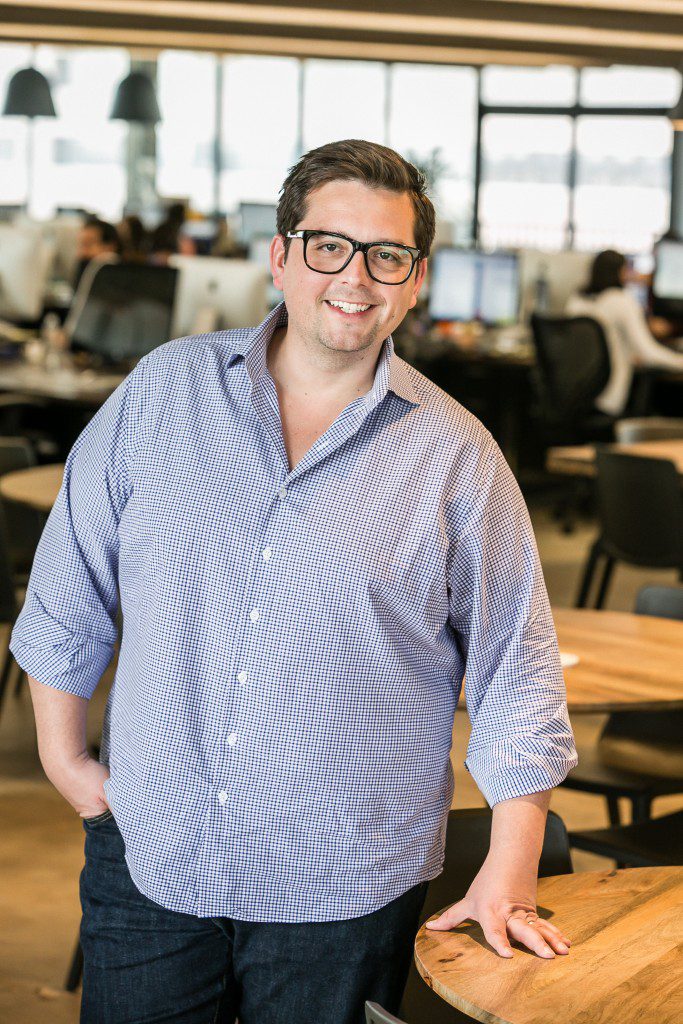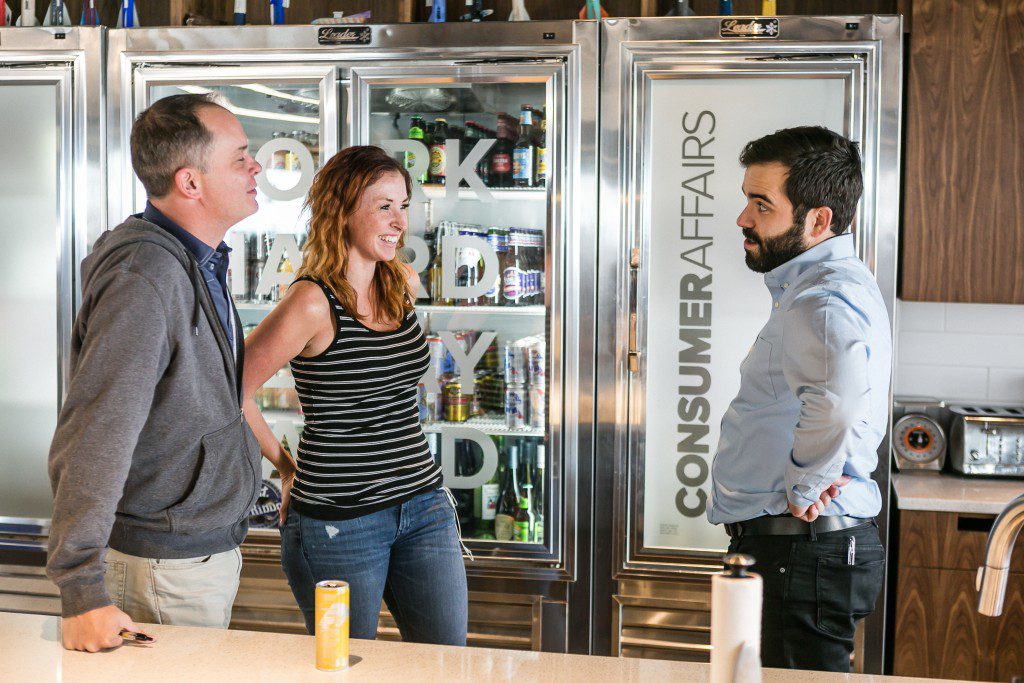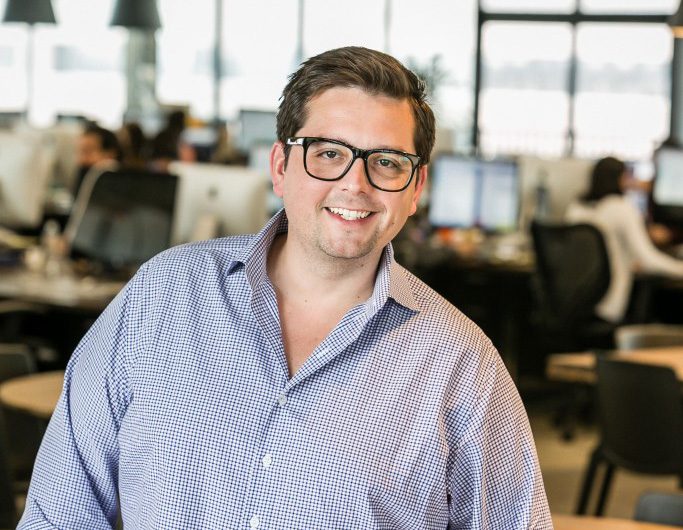
[dropcap]Zac[/dropcap] Carman’s office doesn’t look like a stereotypical CEO’s office. The head of ConsumerAffairs has the company’s Stormtrooper Award, complete with a full-sized Stormtrooper helmet, from the movie Star Wars, in one corner. A copy of The Oregon Trail Card Game sits on top of a bookcase. His desk doesn’t denote any special status: it’s the same type of desk used by every other employee at the company. It’s not even his office, really – he shares it with three other people.
Carman’s office isn’t the only thing that marks ConsumerAffairs as a nontraditional company in Oklahoma. The dress code is casual, and more employees wear jeans than suits. Employees may stop by a stocked cooler to pick up a beer or play a quick game of foosball or table tennis when they hit a mental block for a problem.
“In creative organizations, productivity is a function of creativity,” Carman says. “Our business is one in which people need to be creative, and people need to think about problems in a unique way. Productivity is measured in creating new solutions to problems or creating new content to address a problem. Those people can’t be productive if you are cramping their style.”
Carman is a fifth-generation Tulsan and Dartmouth College graduate who was working for an investment firm when he decided to find a company he could acquire, along with a group of investors, and move to Tulsa. From the beginning, he says he wanted to build an enduring franchise and create what he calls “a city-changing company.”
Since he has acquired the company, which provides guidance to people making major purchases, ConsumerAffairs.com has climbed from 1 million monthly visitors to 7 million monthly visitors and shown similar growth in every area. Carman credits much of that growth to a focus on creating an environment where the company’s employees can succeed.
“The more we do to take care of employees, the better the business performs,” he says. “Our growth has accelerated every year. When I acquired the company, the business was growing pretty slowly – 20 or 30 percent a year. Then we began to grow about 100 percent a year, and now we’re just shy of tripling the company each year. The ability to do that as the numbers get bigger is pretty staggering.”

While the company’s environment may be considered unusual in Oklahoma, Carman says it’s the status quo in cities like San Francisco or Seattle. Part of the difference is the age of the companies – Carman says many companies with similar environments, including Facebook and Google, are less than 20 years old.
The company’s benefits to employees stretch far beyond a stocked refrigerator for drinks and snacks cabinet. The company provides health insurance for the employee and family, a 401(k) matching plan and some unusual benefits like unlimited paid time off.
Carman says many people viewed giving unlimited paid time off with some skepticism. One friend, also an entrepreneur in Tulsa, told him it would never work and people would take advantage of the benefit. The company’s experience, however, told a different story.
“We actually had to put an incentive plan in place to get people to take time off, because if you hire the right people who are truly highly functioning, those people just want to kill it,” he says. “They want to do a great job, and those people will never take vacation.”
While the company works to create a positive, upbeat atmosphere for its employees, Carman also says the revitalization of Tulsa’s downtown has helped when recruiting from other cities. He says he likes to think of ConsumerAffairs as playing a small part in that movement, but also points to work done by the George Kaiser Family Foundation, Tulsa Mayor-elect G.T. Bynum and the McNellie’s Group in creating a thriving social scene in Tulsa.

“I think that you can’t have one without the other,” Carman says. “Without a vibrant downtown, without the Brady Arts District and the [Blue Dome] District and that vibrancy of the social scene, you can’t recruit people here. It’s a holistic effort.”
While people may have been skeptical of the environment at ConsumerAffairs, Carman says he expects more people to follow the model in the future.
“I think the reality is if they don’t, those companies will get disrupted, and all the best talent is going to go elsewhere,” he says.























